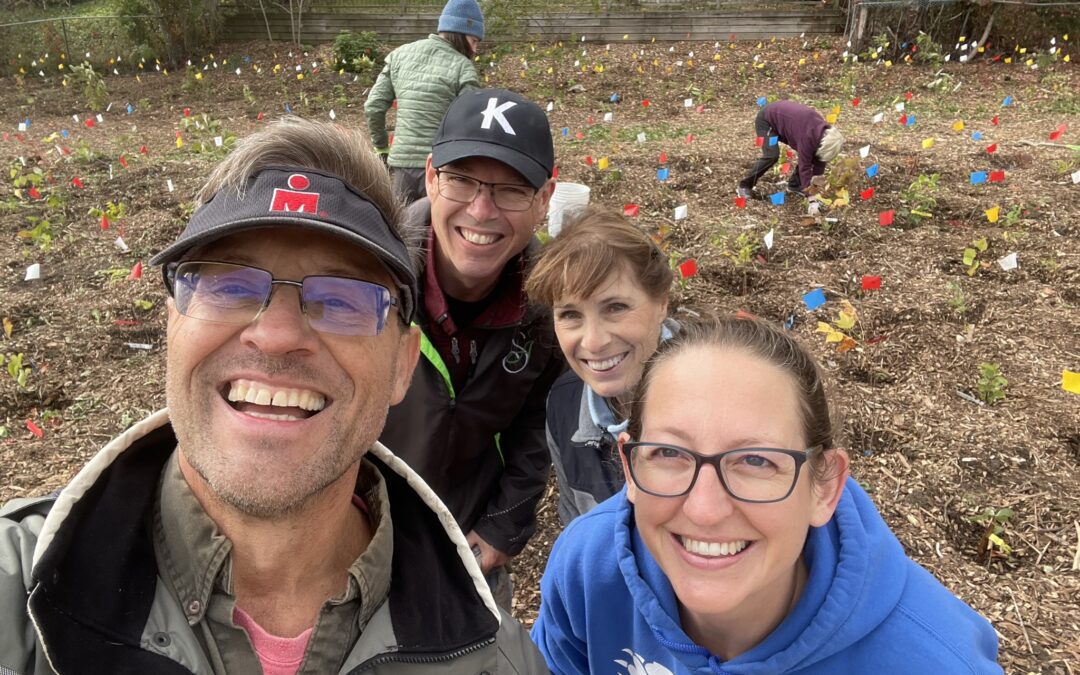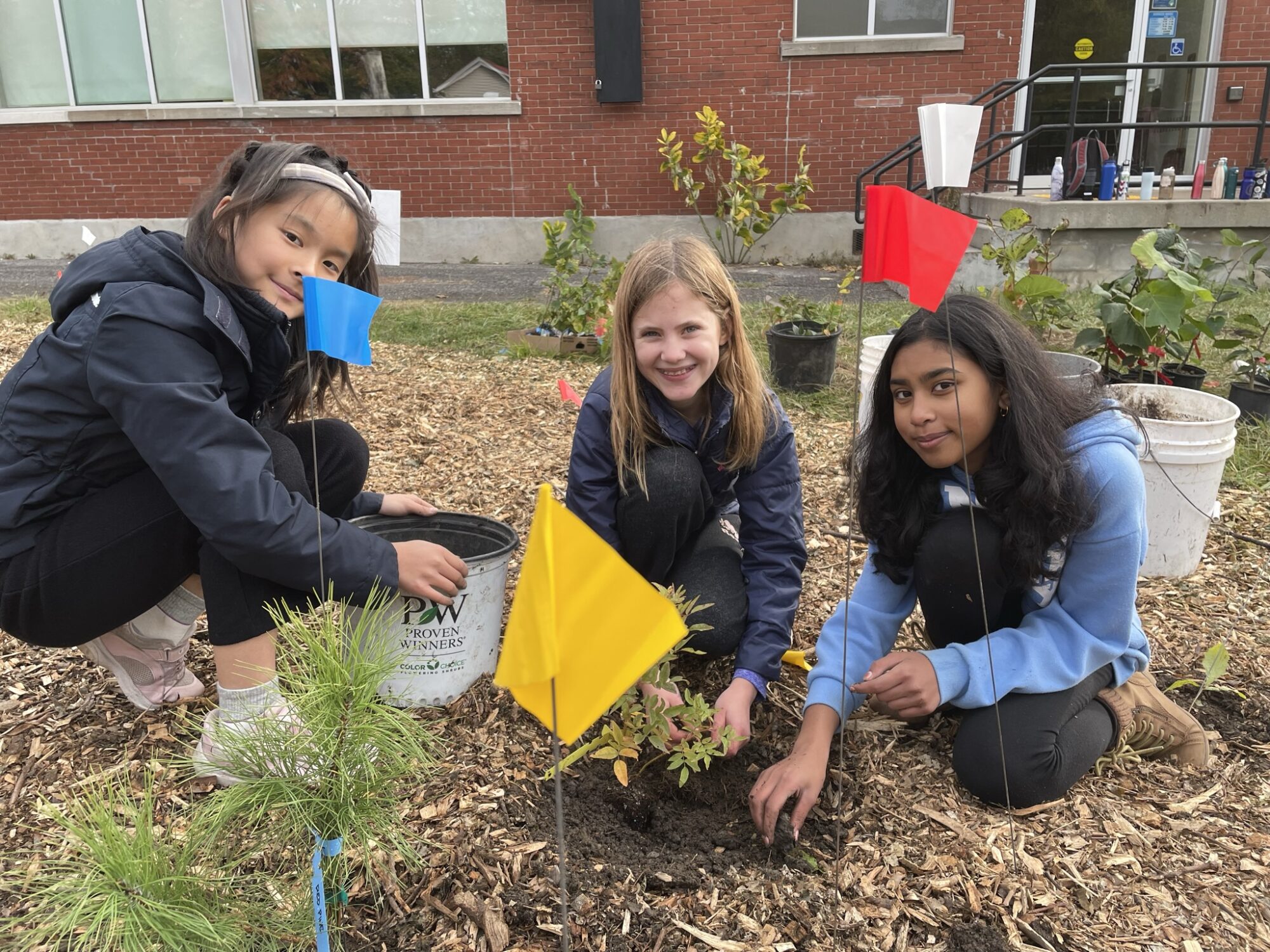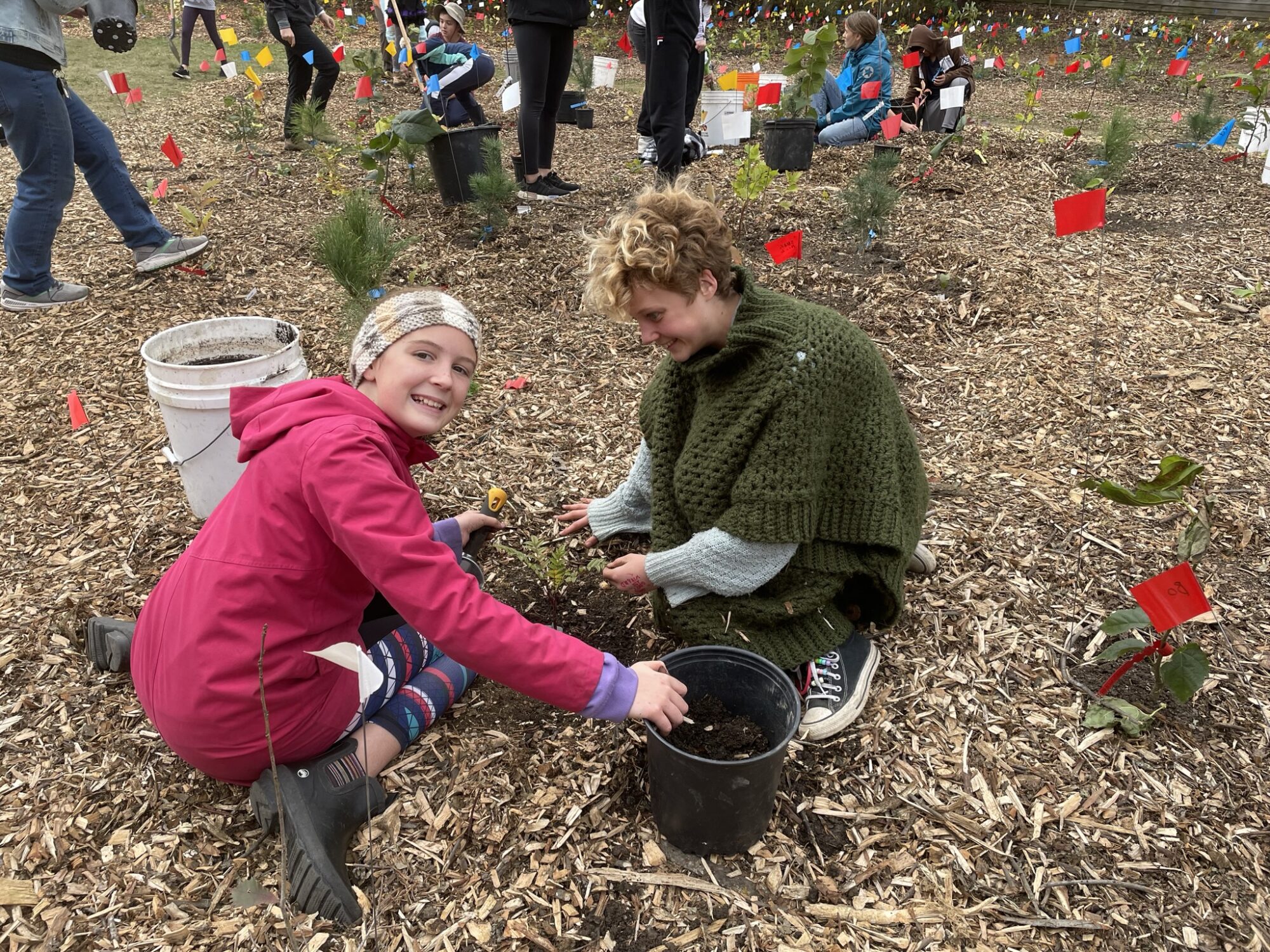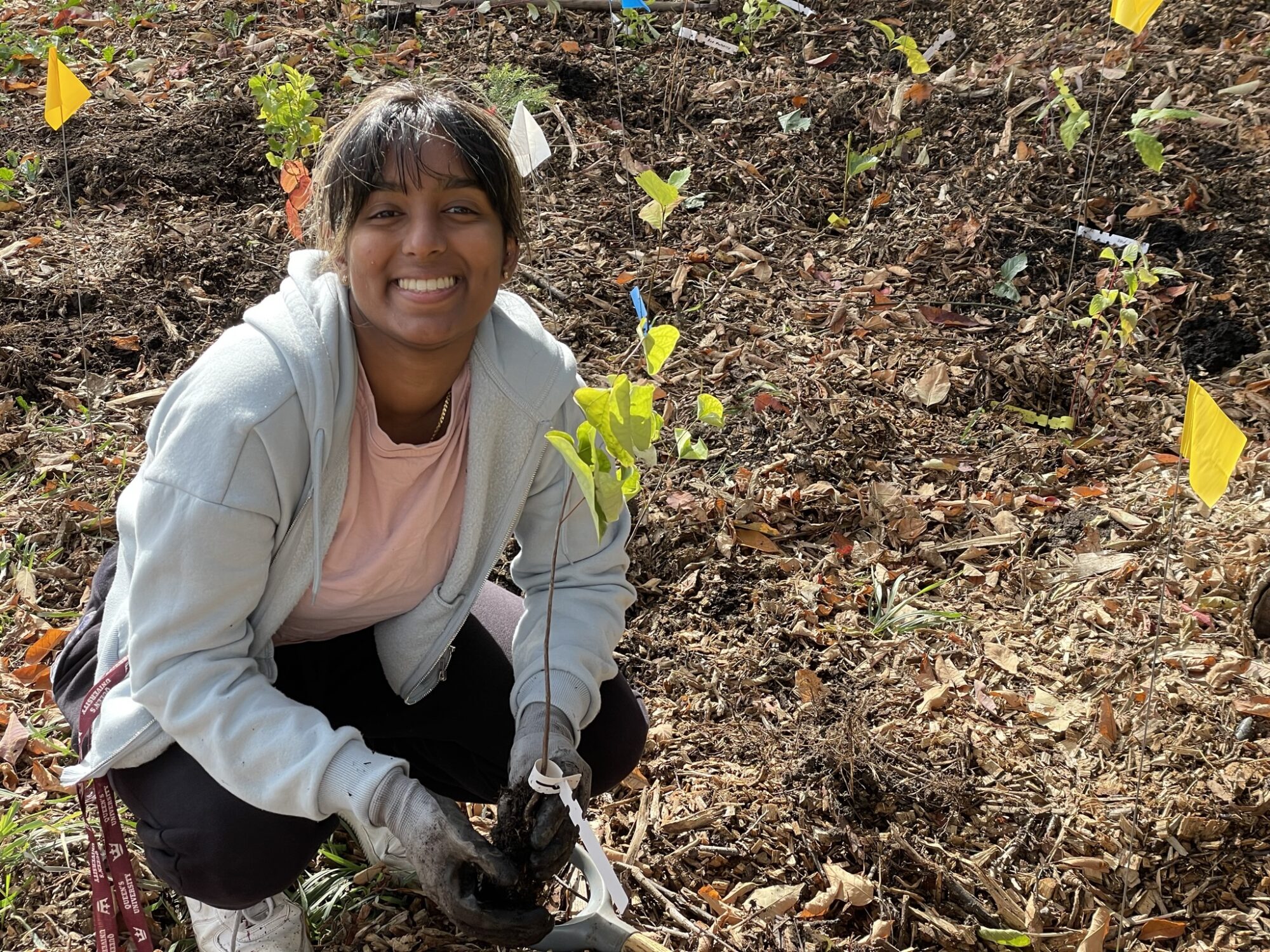Little Forests Kingston installed three new little forests (also known as mini forests) at the Kingston Seniors Centre in Kingston, Ontario. One of these mini forests replaced existing turfgrass, and one involved first removing invasive species. The third was in an area with a perched water table, where an excavator was hired to dig out the top 60 cm of soil so that it could be amended before the mini forest was planted. No small challenge for this mighty group. These mini forests included 1620 trees and shrubs, representing 35 native tree and shrub species.
The Project
Little Forests Kingston’s three new mini forests were planned in partnership with the Kingston Seniors Association and the City of Kingston, to naturalize and beautify the outdoor space at the seniors’ centre, a city-owned property. Additionally, a professor from the Queen’s University Microbiology Department is studying soil microbiology before these new mini forests were installed, and as they become established.
Preparation for the mini forests started in August 2023, before they were planted in October. To prepare the Walking Forest site, Little Forests Kingston staff added compost and mulch directly on top of existing turfgrass, to provide soil nutrients and prevent weed growth.
For the Bird Forest site, existing brush was removed by hand, including invasive species such as European Buckthorn, Multiflora Rose, and Manitoba Maple, and spreading species such as Virginia Creeper and Wild Grape. Compost and wood chips were then added on top of the soil where the brush was removed.
The site where the Great Lakes Mixed mini forest was to be planted was identified as a perched water table 30 cm below the surface, meaning that the aquifer was identified as higher than the regional water table. This happens when there is an impermeable layer of rock or sediment above the main water table but below the land surface.1 To increase the drainage of the site, Little Forests Kingston hired a contractor to excavate the top 60 cm of soil and mix it with compost.
The mini forest planting took place over several days in October. On Saturday, October 15, Little Forest Kingston volunteers were on site to plant half of the trees. The next day, they completed planting the Walking Forest and the Bird Forest. Next, on Monday, October 17, 100 Grade 7 and 8 students from Calvin Park Elementary School planted the Great Lakes Mixed Forest. Finally, on October 18 the project was completed with volunteers planting any remaining trees, checking the quality of the plantings, and watering the sites. Nearly 200 people were involved in making this event a success, which is summarized here in the Kingston Whig Standard.
Little Forests Kingston will be monitoring and maintaining the site for the next three years to help the new forests thrive. After three years mini forests are generally self-sufficient, with no regular maintenance required. Little Forests Kingston provides public education about their mini forest stewardship practices, which are outlined on their website.
In the future, additional landscaping and naturalization are planned for the Kingston Seniors Centre, including pollinator gardens, a food forest, and a water feature.
Lessons Learned
Since this was the first mini forest in Kingston to be installed on city-owned lands, regular communication with the municipality was required to obtain their approval. The approval process was both pioneering and time-consuming. Nathan Nesdoly of Little Forests Kinston has shared,
“As a result of the Seniors Centre project supported by Green Communities Canada, the city has initiated a policy and process, modelled after our practice, that will allow us and other community groups to plant biodiverse habitat on city-controlled public lands—so I think this was a success.
Final Thoughts
Little Forests Kingston was founded three years ago, and has been promoting equitable and biodiverse mini forest plantings by installing these projects throughout the region. Their process of collaborating with and engaging various partners, including the City of Kingston, the Kingston Seniors Association, Queen’s University, and Calvin Park Elementary School resulted in a highly successful event. As they establish, these three new mini forests will support biodiversity, contribute to local climate change mitigation and adaptation, and enhance the human experience at the Kingston Seniors Centre. For those interested in following their ongoing mini forest work, you can read their October newsletter and subscribe here.
This project was supported by Green Communities Canada’s Living Cities Canada Fund.
To find plants that are adapted to grow in your region, or plant nurseries that sell native plants, visit the Network of Nature website.




Recent Comments